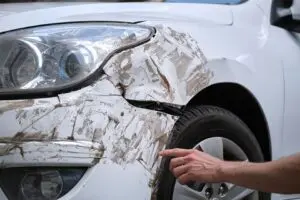What is a Claim?
A claim is a legal action concerning physical or mental harm suffered by the plaintiff due to the defendant’s negligence. In the case of insurance claims, it is a request made by the insured to the insurance company for coverage and compensation for damage or injury. A claim is sometimes also referred to as a Cause of Action.

What is a Claim?
Cornell Law School’s Legal Information Institute defines a claim as, “a set of operative facts creating a right enforceable in court.” Making a claim is how the process of a plaintiff filing a lawsuit and eventually receiving damages from a defendant begins. A claim must be present in order for a lawsuit to go forward. If one is not present in a specific instance, then that lawsuit will be dismissed. Examples of types of claims include claims to insurance companies, personal injury claims in cases of negligence, claims on breaches of contract, property claims, and employment claims such as unpaid wages, wrongful termination, or discrimination. A defendant may make a counterclaim against the claim of a plaintiff.
Claims can sometimes be dismissed even if there is an intent to file a lawsuit. Rulings in cases such as Ashcroft v. IQBAL and Bell Atlantic v. Twombly have determined that claims need to contain important information. They must be plausible on their own and establish a likelihood of liability. This is how claims can lead to fair compensation, resolution of disputes, and protection of rights.
More information about Claim
Workplace Injuries During 12-Hour Shifts
Extended 12-hour shifts in various industries, including healthcare, manufacturing, and emergency services, pose significant injury risks due to physical and mental strain. These workers often experience fatigue, poor decision-making, and increased accidents. Healthcare workers often lift patients and operate heavy equipment, putting them at risk for back and musculoskeletal injuries.
Manufacturing workers face heavy machinery and high-risk environments, leading to burns and severe cuts. Emergency services personnel face high-stress situations, causing physical and emotional strain. And transportation workers face constant driving hours, increasing the risk of accidents. Understanding these risks helps implement preventative measures and ensure legal support for workplace injuries.
Common Industries with 12-Hour Shifts and Injury Risks
Industries that require 12-hour shifts are some of the most physically and mentally demanding environments, where the risk of injury is ever-present. In healthcare settings, doctors and nurses work tirelessly around the clock, […]
Read MoreMore information about Claim
Disposal Worker Injured by Pickup Truck in Lancaster County Crash
A disposal worker was injured in Lancaster County on the morning of December 9 after being hit by a pickup truck. According to news reports, the incident happened around 5:30 a.m. along South State Street in West Earl Township. The worker had just dismounted from the trash disposal truck when he was struck by the truck.
The worker sustained multiple injuries and was transported to the hospital, where he is in stable condition. Police say the crash is still under investigation.
Workers’ Compensation and Car Accidents
Getting into a car accident while on the job can be a complex situation as it involves both personal injury and workers’ compensation elements. Whether you’re a delivery driver, traveling salesperson, or simply running a work errand, understanding your rights and the steps to take after a work-related car accident is important for protecting your health and financial well-being. […]
Read MoreMore information about Claim
What Does a Wrongful Death Lawyer Do?
 When faced with the tragic loss of a loved one due to someone else’s negligence or wrongful actions, understanding how a wrongful death lawyer can help becomes essential. These legal professionals specialize in wrongful death claims, guiding families through the legal process while advocating for their rights.
When faced with the tragic loss of a loved one due to someone else’s negligence or wrongful actions, understanding how a wrongful death lawyer can help becomes essential. These legal professionals specialize in wrongful death claims, guiding families through the legal process while advocating for their rights.
A wrongful death attorney helps families file their claims and build strong cases. They work diligently to gather evidence and establish who was at fault. They also fight to secure fair compensation for the family’s devastating losses. The process involves a thorough investigation of the death. They often bring in expert witnesses to strengthen the case. Throughout the process, they handle all negotiations with insurance companies.
Each element plays a vital role in building a compelling case to, ultimately, hold the responsible parties accountable. With a focus on both legal expertise and compassionate support, a wrongful death lawyer is dedicated to helping families find justice during one of the most challenging times in their lives. […]
Read MoreMore information about Claim
What is the Penalty for a Hit and Run in Philadelphia?
If you’re involved in a car accident in Philadelphia, leaving the scene can result in serious penalties, especially if someone is injured in the accident. You could be facing huge fines and potential injuries. Many times, injury victims are confused about what their legal rights are, especially if the driver is never found. Here’s what you need to know about protecting your interests and seeking compensation.
If you were involved in a car accident with a hit and run driver, our Philadelphia car accident lawyers can help Contact Munley Law today to schedule a free consultation.
Legal Obligations After a Philadelphia Car Accident
 Pennsylvania law mandates that you must stop your vehicle immediately if you’re involved in an accident. You are required to exchange information with the other parties involved. This typically includes your name, address, and vehicle registration number. For accidents involving injury, […]
Pennsylvania law mandates that you must stop your vehicle immediately if you’re involved in an accident. You are required to exchange information with the other parties involved. This typically includes your name, address, and vehicle registration number. For accidents involving injury, […]
More information about Claim
What Is the Average Compensation for a Pedestrian Hit by a Car in Philadelphia?
Philadelphia sees hundreds of pedestrian accidents each year, with Center City and Roosevelt Boulevard being common accident sites. Being hit by a car as a pedestrian is traumatic, and understanding what compensation you might receive can help ease some of your worries. While every case is different, pedestrian accident settlements in Philadelphia typically range from $50,000 to $200,000, with some cases reaching into the millions depending on several factors we’ll explore below.
If you were involved in a pedestrian accident in Philadelphia, Munley Law is here to help. Contact our Philadelphia pedestrian accident lawyers today to learn your legal options and get your questions answered.
What Determines Compensation Amount in a Philadelphia Pedestrian Accident Case?
 The size of your settlement depends on multiple factors working together. Medical bills are usually the starting point—everything from ambulance rides and emergency room visits to ongoing physical therapy is counted. […]
The size of your settlement depends on multiple factors working together. Medical bills are usually the starting point—everything from ambulance rides and emergency room visits to ongoing physical therapy is counted. […]









